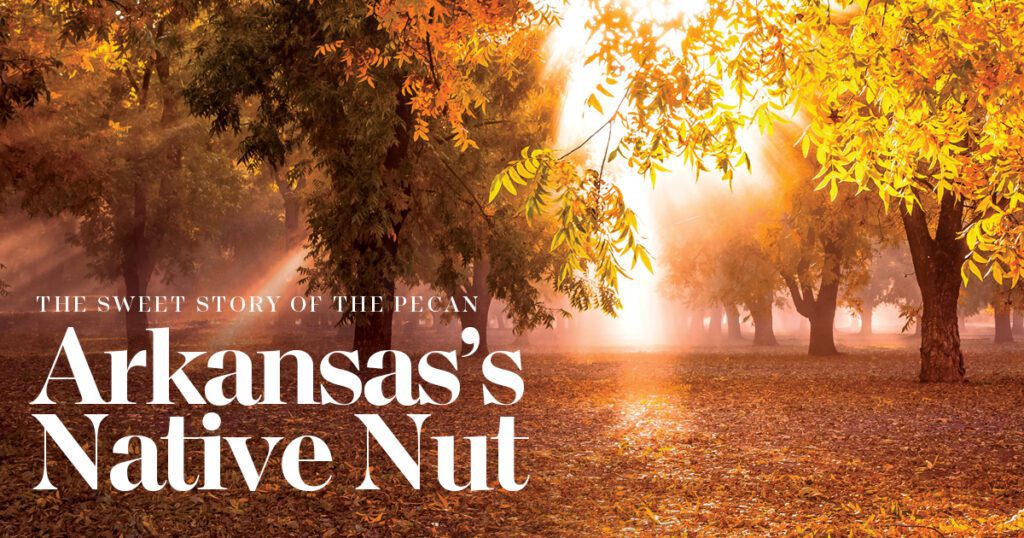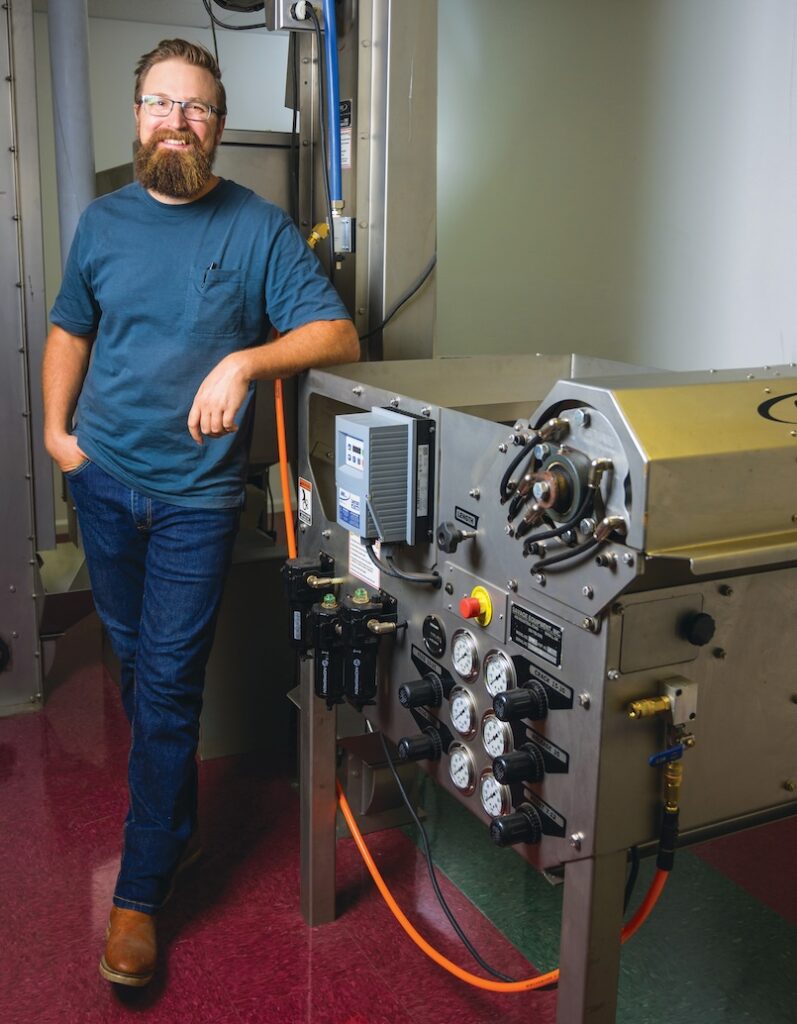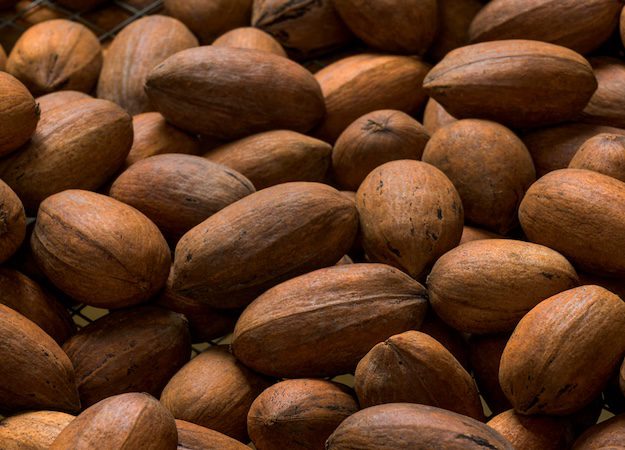05 Nov 2023 The sweet story of the pecan
By Judy Riley
Pecans are not just the official state nut, the Arkansas Department of Heritage named them the 2023 Food of the Year.

Nestled in the heart of the 501 lies a small town with two big assets: people with big ideas and more than 500 acres of some of the finest pecan orchards in Arkansas. The town is Keo, just 25 miles southeast of Little Rock but far away from the hustle and bustle. Residents and the surrounding area have an enthusiasm for promoting pecans. Proclaiming Keo the Pecan Capital of Arkansas, the townsfolk plan their second annual Pecan Festival for Saturday, Dec. 2. It is all free to the public and starts in the commercial historic district and includes a pecan cooking contest, including both sweet and savory concoctions, as well as the Southern traditional pecan pie. Bicyclists can participate in the competitive, 35-mile “Keo Pie Ride.” There will also be entertainment, food trucks, displays and vendors selling, you guessed it, pecans! Keo Mayor Stephanie White looks for the festival to be a huge success and a great way to promote pecans as well as show off their town.

Pecans in Arkansas are an important crop as well as a delicacy we enjoy, especially during the holidays. “Arkansas produces around 2 million pounds of pecans per year and ranks in the top 15 pecan-producing states,” said Dr. Jackie Lee, pecan researcher and current director of the University of Arkansas Division of Agriculture (UADA) Fruit Experiment Station in Clarksville. Much of that production is in Central Arkansas. Because of the soils, sources of water and climate, there is a great potential in the state to expand both acreage and quality, according to Lee. In 2009, The Eighty-seventh Arkansas General Assembly passed a bill that designated the pecan as the official state nut.
Pecan trees are an investment in the future. “Trees begin producing pecans in years 4-7 and are not in full production until year 25,” Lee said. “There are some orchards with 50 plus-year-old trees. Some over 100 years old are still producing pecans. There are a variety of pecans grown in Arkansas. Old orchards are generally [producing] either Desirable or Stuart. Newer varieties are Pawnee, Kanza, Caddo, Oconee and Lakota.” When asked what a home gardener should look for when planting a pecan tree or two, Lee suggested planting Kanza because it currently has the best disease resistance and one can get a decent crop with less management than other varieties. Kanza has a smaller nut than many improved varieties but superior flavor, and due to the smaller nut size, it takes less water to mature the nuts, which is great for an area without irrigation. It is very important to remember that irrigating newly planted pecan trees is very important for establishment. A mature pecan tree will use up to 200 gallons of water per day.
One young pecan grower is looking to the future. John Bruhl recently purchased Baucum Nut House, named for an area just east of North Little Rock, and the pecan orchard that went with it. He enthusiastically ventured into the world of pecan growing by first apprenticing with previous owners Phillip and Dan Nelson. His aim was to learn from the best and that he did. The Nelson brothers sold both the retail establishment, the orchard and a family home only after seeing the ability and interest of Bruhl.
Bruhl always had farming in his blood. He spent time with grandparents on the family farm in southeast Missouri and then worked for an uncle in Texas raising cattle and pecans. Meanwhile, he finished a degree in industrial design but never lost a yearning for farming and country life.

After returning to Arkansas and marrying, his interest continued as he researched the fascinating field of growing pecans. He immersed himself in learning the latest technology, utilizing resources from UADA researchers, and got involved in the Arkansas Pecan Growers Association. His aim, like that of the Keo mayor, is to promote pecans in Central Arkansas. Bruhl is also the president of the Arkansas Pecan Growers Association.
Bruhl uses a mechanical shaker, which vibrates the tree, causing the pecans to fall. He then scoops up pecans from the orchard floor using a mechanical harvester. At every step, he uses the best sanitation practices. His retail needs often exceed his capacity to produce, so he selectively buys from other Arkansas producers, making sure they follow best practices to maintain safety and quality. He also cracks and shells pecans for the public. Bruhl sells his pecans through his retail outlet, Baucum Nut House, 214 Steed Road in North Little Rock. Learn more at baucumnuthouse.com.
This fall as leaves turn, the humble pecan tree begins its age-old process: The outer shell, called a shuck, dries, cracks and opens, allowing the nut to fall to the orchard floor, ready for harvest. A collection of crows, blue jays and squirrels are well-schooled in the process and anxiously wait for their treats! It is time to celebrate this 501 treasure, whether visiting the Arkansas Pecan Festival in Keo, baking a pecan pie or munching on pecans in front of a warm fire. To add celebrity status to the pecan, the Arkansas Department of Heritage has named its “2023 Food of the Year” the pecan.










